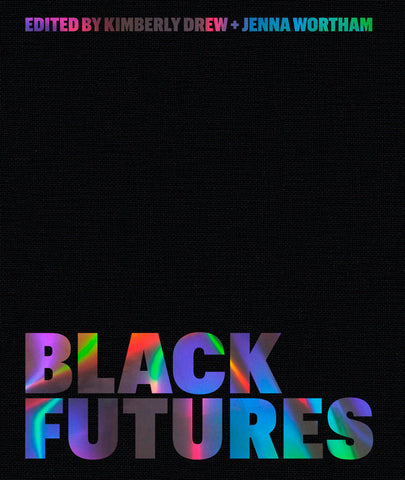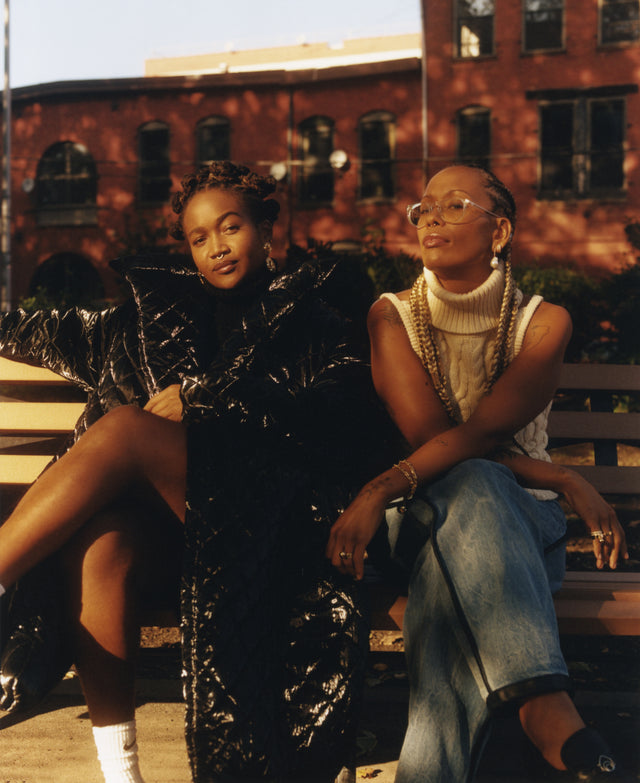Our Folklore: Writers Jenna Wortham And Kimberly Drew On Telling The Stories Of Black Creators
Jenna Wortham and Kimberly Drew are two of those people you would describe as “multi-hyphenates” but to be straightforward, we’ll go with writers and curators. They are curious women who pay close attention to the ever-changing world around them and, in the process, have developed a unique eye for culture, beauty and style. Jenna and Kimberly found their initial interests in art and writing while in college and once they did, pursued their field bravely and wholeheartedly.
Jenna is a journalist currently working as a culture writer for The New York Times. She also co-hosts the Times’ critically acclaimed podcast Still Processing. Art curator-turned-writer Kimberly Drew, popularly known by her social media handle @museummammy, was the former social media manager for the Metropolitan Museum of Art and now spends her time contributing to publications such as Glamour, W, and Teen Vogue.
However, while working in these predominantly white spaces they felt underrepresented along with the pressure to suppress their full identities within their workspaces. Jenna and Kimberly realized they wanted to do more to highlight the beauty and value in Black voices and experiences, especially in professional settings. The duo then began to engage in a conversation about the trajectory of Black culture they were witnessing with the rise of technology and social media. Hailing from different professional backgrounds, both Jenna and Kimberly brought different yet meaningful perspectives to this conversation. Through close collaboration, they decided to create a way to promote all of the multifaceted and imaginative work of contemporary Black creatives.
Thus was born their mixed-medium book Black Futures, an anthology of contemporary Black culture. With this book, Jenna and Kimberly demonstrate, through paintings, essays, memes, poetry, fashion, infographics, and other creative work, what they believe it means to be Black and alive right now as told by the creative trailblazers of our time. With more than 100 contributors to their archive and more than 500 pages, Black Futures encases all unique and essential perspectives of the Black identity and experience. From queer to trans and disabled identities, many and complex Black voices are present in the book, a physical manifestation of Kimberly and Jenna’s aim to provide a sort of roadmap for authentic identities that young Black creators can look to when striving toward their own goals and careers in art, fashion, writing, and other creative pursuits.
Kimberly Drew and Jenna Wortham’s work is a thoughtful interpretation of the ever-advancing development of Black culture. The book addresses the constant strive for cultural progress that is necessary in society today, however, with an emphasis on how the culture overcomes each setback with strength, resilience, and beauty. The works demonstrated in the book showcases current movements in Black culture in a way that foreshadows the endless possibilities of what it might look like in the future.
Listen to the first episode of the second season of ‘Our Folklore’ for our interview with Jenna Wortham and Kimberly Drew here, and on Apple Podcasts or Spotify. Find excerpts from the interview below.

“I think in a lot of senses and a lot of cases for especially Black writers we are asked to do things that may not always speak to the deepest senses of our hearts and so it was really important for us when engaging with healers and artists and cooks and just this incredible gamut of folks to make sure that each contribution really spoke to what they wanted to see manifested.”

“We were thinking a lot about trying to be as inclusive of blackness as we could and we were bringing in a lot of our own worldviews. I know that we were thinking a lot about black disabled voices and thinking a lot about black trans voices. We were thinking a lot about not marginalizing the most marginalized among us.”

“We sat down and had this really fruitful conversation about trends we were both observing and things we were both really thinking and really feeling about this moment in Black culture especially in relation to social media and to digital communications and our abilities to really witness each other in unique and profound ways.”

“This was years before we started having these conversations about how white these tech companies were and the gender issue they were having and it was very difficult to get support around a lot of those ideas and that was also kind of what started this personal great migration for me in my career where I was like, ‘OK if I can’t do this work here in my career then where can I do it?’”

“I think for me, I have gotten so much gratification in my career by leaning into who I am. I don’t think that I am the kind of person who can pretend to be anyone else. I think about one of the first times I was doing a public lecture and I started talking about being queer and how important it was for me to express my queerness in the work that I was doing and take on a level of pride and sense of self.”

Words by Reann Philogene

